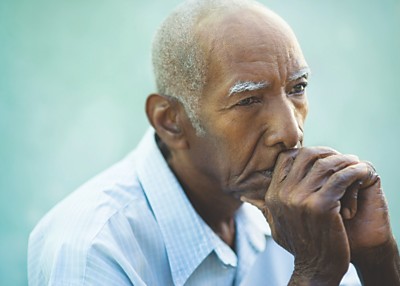Overcoming Prejudice and Persecution in Central Asia
 |
In
Central Asia, a person’s religious beliefs are closely aligned with
cultural identity. Folk Islam has dominated the region for centuries,
but more radical forms of Islam are gaining ground.
|
Unfortunately it’s a way of life for churches in parts of Central Asia, where Christians face persecution from both government authorities and radical Muslim groups.
During 70 years of Soviet rule, atheism was the law of the land and both Christianity and Islam were harshly suppressed. With the fall of communism in 1991, however, Islam was revived. Its influence spread during the same time many Christians of various European nationalities were migrating out of Central Asia.
Coupled with this history is a staunch cultural resistance to the “foreign religion” of Westerners, and a new wave of Muslim extremism that is infiltrating society.
Considering all of these factors, it is not surprising that hostility against the Christian minority is intensifying.
“In November we had planned to hold a special service for the 15th anniversary of our church. However, we couldn’t do this, as some chemicals were thrown on the building we were renting,” reported one pastor. “The chemicals gave off such a smell that it was not possible for people to be in the facility.”
Another church paid a fine of more than $1,000 for handing out Christmas gifts to children. They were accused of using the needs of people for their gain. An appeal of their case to the courts proved unsuccessful.
Laws regarding religious activity vary from country to country. Proselytism is largely prohibited, and churches must register with the government. Meeting the criteria for legal registration is complicated and sometimes almost impossible, however, and government monitoring of religious activities by spies or secret police is commonplace.
Some churches prefer to operate “underground,” meeting in private homes. If caught, believers face stiff fines or prison. In one village, a woman was penalized the equivalent of four years of her income for hosting a group of Christians for fellowship at her house.
In Tajikistan and Turkmenistan there are very few believers, and many rural areas have not been penetrated with the gospel.
Christian Aid Mission assists more than a dozen ministries working in the Central Asia region.
“We see a great need for more ministers to reach unreached villages and towns in the region where we live, and where we are preaching the gospel,” said the ministry leader in one Central Asian country.
To meet that need, the ministry is starting a three-week training school program which prepares missionaries and church leaders for Christian service. A theological education is hard to come by in this part of the world, and often requires a student to travel far from home. Many who do go away to attend Bible school in a large city do not return to their community.
 |
Christians gather for worship at a state-registered church.
|
Those who complete the program will be better equipped to share the gospel and plant churches in unreached areas. The ministry has four missionary teams that are currently overseeing the nurture and discipleship of 39 small congregations. Additionally, they are at work planting churches in another 20 communities.
Despite the challenges, missionaries with a ministry in another Central Asian country have started more than 270 churches over the past three decades. Local believers who are already involved in ministry can attend Bible school training sessions that are held in select locations, so students from across that country can attend. The sessions vary in duration from six weeks to three months.
If anything, opposition to Christianity, particularly evangelicals, has only spurred greater unity and commitment among believers in the region. Overcoming cultural misconceptions is an uphill battle, but ministry leaders are encouraged by a new generation of believers who sense the urgency to take the gospel to their own people while they can.
Please pray:
- For more Central Asian believers to receive missionary training and to start churches in communities unreached with the gospel
- For Central Asian governments to make it easier for churches to receive legal registration
- For those in spiritual bondage to experience true freedom in Jesus Christ
Use the form below to contribute online. Or
call 434-977-5650 to contribute by phone. If you prefer to mail your
gift, please mail to Christian Aid, P.O. Box 9037, Charlottesville, VA 22906. Please use Gift Code: 462WMN. Thank you!










 Because
depression is a "de-pressing" of a person's passion for living, the
church must be a proactive voice addressing the topic. Few things rob a
person of the rich, joyous life Jesus gives to those He has saved more
than depression. This condition propels people into isolation, apathy,
and resignation, all of which are antithetical to living fully in
Christ.
Because
depression is a "de-pressing" of a person's passion for living, the
church must be a proactive voice addressing the topic. Few things rob a
person of the rich, joyous life Jesus gives to those He has saved more
than depression. This condition propels people into isolation, apathy,
and resignation, all of which are antithetical to living fully in
Christ.
 To
add to all this drama, the rains fell after three and a half years of
drought, and Elijah ran ahead of King Ahab's chariot all the way to
Jezreel -- about 20 miles in a blinding rainstorm. We might call this
episode the first biblical marathon!
To
add to all this drama, the rains fell after three and a half years of
drought, and Elijah ran ahead of King Ahab's chariot all the way to
Jezreel -- about 20 miles in a blinding rainstorm. We might call this
episode the first biblical marathon! Worst
of all, although God hadn't left me, the awareness of His presence that
I'd always enjoyed had vanished. One evening, I mentioned my struggle
to someone who was spiritually sound and whose opinion I valued. "I
can't feel God," I said. "This sadness is devouring me, and I can't find
Him, no matter what I do."
Worst
of all, although God hadn't left me, the awareness of His presence that
I'd always enjoyed had vanished. One evening, I mentioned my struggle
to someone who was spiritually sound and whose opinion I valued. "I
can't feel God," I said. "This sadness is devouring me, and I can't find
Him, no matter what I do."









